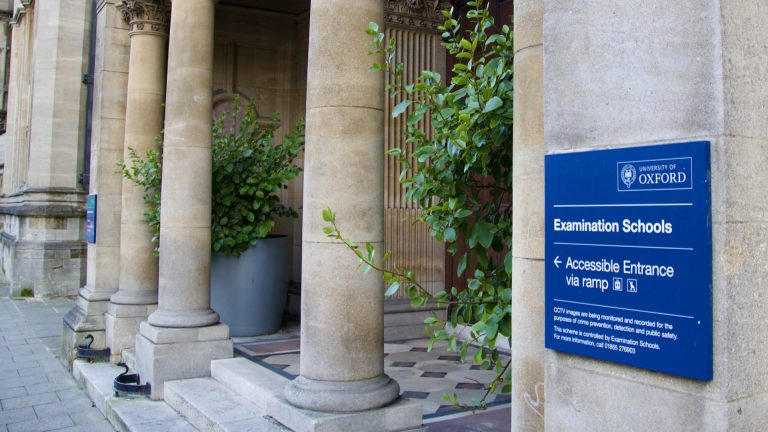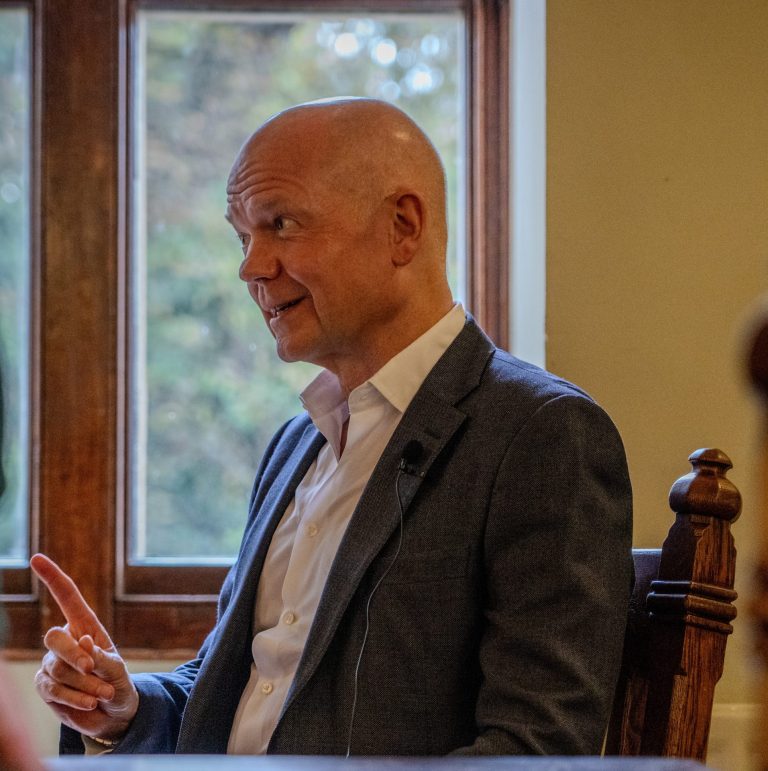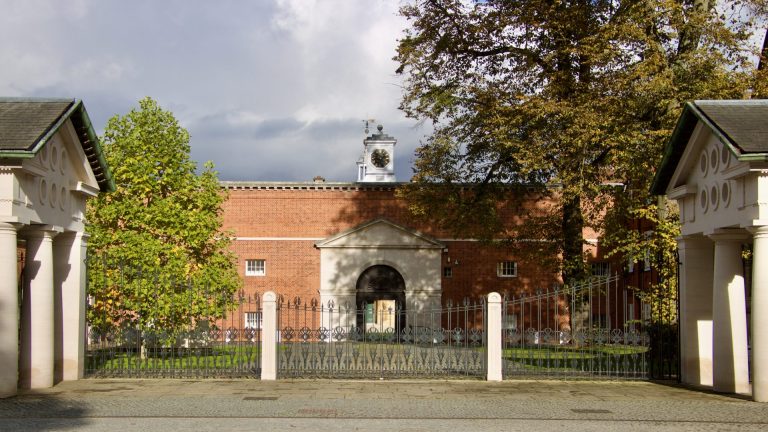Dominic Grieve KC is ready for the job, or as ready as you can be for a job that has no real defined role. By his own admission, of the countless election campaigns that he has fought in his life, this one is “totally unique”. Having said that, Grieve is more than ready to make his pitch.
Dominic Grieve has led multiple extremely distinguished careers. First a lawyer and then as a new Conservative MP elected in 1997. He went on to represent his constituency of Beaconsfield for 22 years, and served his first cabinet role as Attorney General for David Cameron’s coalition government from 2010-2014. After that, he was Chair of the Intelligence and Security Committee for four years and came to particular public prominence during the Brexit negotiations after the referendum in 2016. He was in favour of a second referendum and regularly brought amendments to the government’s various ‘Brexit bills’ in the years after the referendum. Alongside Rory Stewart, Greg Clarke, and Phillip Hammond, he had the whip suspended by Boris Johnson in 2019 for voting against a no-deal Brexit. He lost his Beaconsfield seat after standing as an independent candidate against the Conservatives in that year’s general election.
Taken alone, none of this is relevant to a role that would see him as the figurehead of the University of Oxford, although the name recognition should certainly help in an extremely crowded field of candidates. What is relevant is the diversity of experiences that Grieve has had in his career, and the diversity of thought that he has expressed. His candidacy does not fit conveniently into the opposing party political boxes which the media has assigned to Lord William Hague and Lord Peter Mandelson.
On why he wants to commit to a decade-long, unpaid position, Grieve is clear: “The point is, can one be useful for the University? … I think I can. Part of it is of course ceremonial but quite honestly I’m not too carried away with that. Ultimately, that part can probably be done by anybody, but then there is the job of supporting the University. I have my own views on higher education and I am very privileged to have been here [Oxford]. I loved and still love the place. But the governance is ultimately for the Vice Chancellor and the Council. They make the decisions but what I think Chris Patten [the outgoing Chancellor] has done well is to provide support, both publicly and privately. Most of all, I see it as job that I could do well for the university, I think it would be fun, and I’ve got the proper amount of time to do it.”
Grieve has very particular views on higher education and agrees that it is at an inflexion point, especially with regard to funding. “In terms of Oxford’s future, it’s competing with American universities which are very heavily endowed. Relatively speaking, the £1.3 billion that Oxford has is not a huge amount of money”.
On his interests in education, Grieve is keen to stress that his focus is and has always been on widening access. He is on the Board of Trustees for the Oxford Centre for Islamic Studies and has done mentoring there, as well as at his former college, Magdalen.
Access is undoubtedly his biggest concern when it comes to the potential raising of tuition fees which has been reported in recent weeks. “Frankly, the level of funding per student is insufficient”, he says. “The problem is that that’s not readily curable. The alternative is to grow your endowment substantially like Harvard or Yale so that you can pick whoever you want and provide support for teaching and research. Most universities in the UK won’t be able to make that leap but Oxford and Cambridge, alongside most of the London colleges, probably are in a position to do that.”
As Grieve goes on to say, there is no “magic wand solution” and an endowment of the five or six billion pounds that he thinks might be necessary is not currently forthcoming. In the long term, he is advocating for a “rewiring of how people approach donations.” Instead of donating to their former colleges, as he does himself to Magdalen, he suggests that a better approach would be more central donations to a general endowment fund.
In the near term, the government’s only option seems to be a tuition fee increase, but Grieve is weary: “I think the idea that you can continue raising it in line with inflation when we’ve had the levels of inflation that we’ve had is completely unrealistic. Ultimately, even raising fees by £1000… will make it even more daunting for students to consider coming. It’s a huge issue and it risks restricting access even more, that’s why you need alternative funding sources.”
By its very nature, the Chancellor position is a spokesperson for the entirety of higher education. On this, Grieve says that there should be an acceptance that some university courses are not worth the price that students are paying. He is quick to reject the last government’s “rude” quips about “Micky Mouse degrees”, but does agree with the premise. “There is a problem, which is that lots of people are going through degrees, which I think may be interesting, but that may not be of great value in terms of setting yourself up to be successful economically. Those people could be at a disadvantage with somebody who’s gone off and got a technical qualification in plumbing and will be earning significantly more than they are.”
Grieve is quick to hit back at the previous government’s rhetoric surrounding international students and immigration. During the Conservative party conference, Grieve went on LBC radio to criticise Robert Jenrick’s campaign video as “nasty” and “scandalous”. “The idea”, he says, “that people are coming here to scrounge rather than to make a contribution, I just don’t think that it’s true and I’ve never seen any evidence of it whatsoever.”
The UK university sector relies heavily on international students to support them financially because they pay far higher fees than domestic students. After changes to rules on dependents under the last government though, arrivals of international students decreased by 16%.
Like many, Grieve passionately believes that students shouldn’t be included in immigration numbers at all. “It is beyond my comprehension”, he says. “I’ve never understood it. Immigration is about people coming to this country for settlement. I cannot see why statistics should include students here for a temporary period.”
In the same vain, and as Vice President of the European Movement, Grieve is insistent that a much-discussed deal with the EU on freedom of movement for young people must happen urgently: “I don’t really understand what is bugging Keir Starmer in not approving it. You can change the rules so that you can’t get permanently settled status through the scheme so there isn’t an issue. Allowing young people to travel is of a huge benefit to us and our young people as well as our diversity”.
Eventually, our discussion moves on to freedom of speech. Predictably here, Grieve is also clear in his convictions: “Freedom of expression within the law is absolutely essential. It is also right, however, that people need to express themselves with civility. There’s a time and a place for everything, but in a university, it should absolutely be possible for controversial views to be put forward, listened to, and debated.
“The encampments are slightly different because they are just a demonstration protest. I personally don’t think that people should break the law in any protest. We have a great right to protest in this country that we facilitate. You are not entitled to glue yourself to the road, or to a door, or to occupy other people’s property. That’s breaking the law.”
Overall, Grieve is a man who believes that his lived experiences would make him useful to the University – that is why he is standing. He has written his personal statement for the university, he is in the process of setting up a campaign website, and he is contacting everyone he can think of to try and drum up support. This, however, is not an election where candidates can stand out by attacking each other. At this stage it is impossible even to know how many people are running.
“I think that I could do this job very well”, he says, “but the reality is that some of the other candidates could too. At the end of the day, I just have to make sure that I don’t disappear and the voters are just going to have to make up their minds.”











